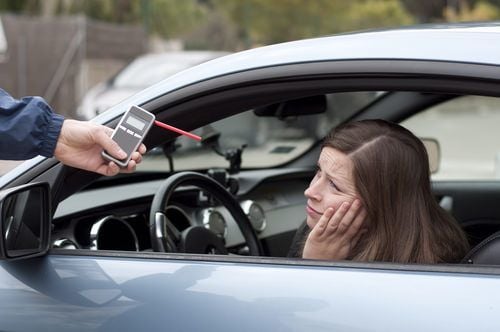Severe Consequences for Underage DWI
North Carolina has long suffered from a constant spat of car accident fatalities involving teenagers who were driving until the influence of drugs or alcohol at the time of their crash. In fact, most car accidents are the result of underage drivers, and legislators have grown tired of it. In 2009, 139 teens aged 16 to 19 were involved in fatal accidents on North Carolina roads. A decade later, there are new laws on the books to try to prevent these needless deaths.
What does zero tolerance mean? Many states approach alcohol from a strange point of logic: alcohol is a “legal” substance, and so they cannot outlaw it completely even under a given circumstance such as driving. It’s only when a person becomes legally impaired that they are barred from driving.
Other states don’t see it so simply retorts Keller Law Offices. Zero tolerance laws generally apply only to specific categories of drivers. Those drivers are legally barred from having any alcohol in their systems. Although most states allow drivers to have up to .07 percent blood alcohol content before they are legally considered to be drunk driving, zero-tolerance laws could get a person arrested and convicted for having even a .01 percent blood alcohol content.
Almost a third of all teenage deaths result from car accidents involving a driver who was under the influence of alcohol or a narcotic substance.
The federal government provides states with “Federal-Aid Highway Funds” to help with infrastructure costs. But in order to qualify, states must define impaired driving for those under the age of 21 as a blood alcohol content of .02 percent or less. This is according to the National Highway Systems Designation Act of 1995. Most states rely on this funding, so they changed their legal restrictions and definitions accordingly.
Zero tolerance laws might not apply to you. Generally, they affect school bus drivers, commercial vehicle drivers, and kids who have yet to reach the age of 21. How the zero-tolerance laws affect each of these categories of motorists may differ.
For example, school bus drivers who are discovered driving while impaired will immediately be placed under arrest. There is no minimum blood alcohol content limit. If you’re a bus driver, you cannot drink any amount of alcohol before driving.
Commercial drivers are treated differently. They are still barred from drinking any amount of alcohol prior to or during the operation of a commercial vehicle, but drivers who are discovered with alcohol in their system will have their commercial licenses suspended for a minimum of ten days.
Kids under the age of 21 face even stiffer penalties in the state of North Carolina thanks to the new underage DWI zero-tolerance laws. Drunk drivers under the age of 21 will lose their license for 30 days before the case even goes to trial. If convicted, the penalties only get more serious:
- Insurance premiums will skyrocket.
- Attorney’s fees can range from $500 to $1,000 — or even more, if your case is stalled in court. Remember, attorneys are “retained” on an hourly basis most of the time, which means when that initial retainer runs out, they ask for more. Don’t underestimate how the costs are already piling up.
- Fines can reach $1,000.
- A courtroom fee of $250. A kid convicted of underage DWI might also be subject to jail time or significant periods of community service.
- Drivers license revocation for at least one year upon conviction, plus a $100 fee to be paid before driving privileges are reinstated.
- Possible substance abuse classes.
Keep in mind that those costs and consequences are penalties for the zero-tolerance laws. Unfortunately, defendants are also subject to the added costs and consequences for underage drinking itself. Additional penalties include:
- Attorney’s fees stay at $500 to $1,000. A retainer might be based on the hour or it might be based on the hour and charge.
- A misdemeanor leveled at the discretion of the court.
- Steep fines.
- Jail time.
- Court fees.
- Community service.
Not sure why North Carolina needs such strict laws aimed at preventing underage drinking and driving? Nearly three-quarters of high school seniors reported drinking alcohol at least once. But even 39 percent of eighth-graders reported the same in the 2009 survey. It’s only gotten worse.
Many other states have similar laws on the books already. They include: Alaska, Arizona, North Carolina, Utah, Oregon, Texas, Pennsylvania, Illinois, Michigan, Maryland, and Oklahoma. Washington D.C. also maintains a zero-tolerance policy toward drinking and driving for those aged 21 or under.




